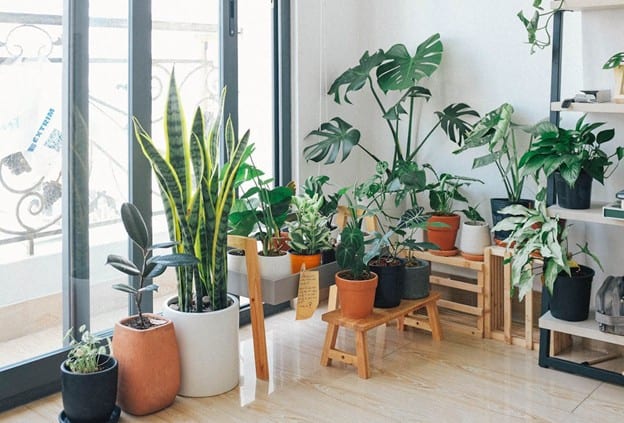Keeping Delicate Houseplants Healthy

Houseplants might make us feel happier by improving the air quality and bringing a natural aspect into our homes. However, houseplants do require care to survive. Many houseplants are sensitive to their environment, hence they require more than just the occasional watering. If you know what they need and give them the right conditions, your fragile houseplants can have long and healthy lives.
Understanding light requirements
The health of your houseplants mostly depends on having enough light. Different plants need different light levels. While others could thrive in low light, some, like the Areca Palm, thrive in strong, indirect light. Finding out the particular light needs of each plant and placing them well is essential. Sunlight will scorch sensitive plants’ leaves, hence it should not be allowed to touch them. Find a place instead where they may receive filtered light. The best windows for many houseplants face east or north.
Watering wisely
Watering sensitive houseplants too much or too little could harm them. Season, humidity, and potting mix affect how much water plants need. Check soil moisture before watering. The water feels dry if your finger is inserted an inch into the soil. Pots should drain well enough to avoid damp bottoms and prevent root damage. Because certain plants are sensitive to contaminants in tap water, rainfall or distilled water might be preferable.
Maintaining humidity levels
Many delicate houseplants thrive in high humidity and naturally occur in tropical settings. Keeping the humidity levels in your house appropriate for their health is crucial. A humidifier kept close by, frequent plant spraying, or plant clustering to create a microclimate can all help to increase the humidity level around your plants. Moreover, placing plants on a tray with water and pebbles will help to keep the soil surrounding them moist. Be careful not to let the pots lie in the water directly, as this can lead to overwatering issues.
Selecting suitable containers and soil
The soil and container you choose can greatly impact your houseplants’ health. Wet, good-draining soil is ideal for delicate plants. Specialist potting mixes can supply the correct drainage and nutrients for succulents and orchids. To drain off extra water, pick a pot with drainage holes. A too-large container could retain too much moisture, and a too-small pot might impede the growth of roots.
Consistent pruning and feeding
Regular usage of fertilizer will help to maintain the health of your houseplants. Delicate plants benefit from a balanced, water-soluble fertilizer applied during the growing season. Do not fertilize more than is recommended by the manufacturer. Pruning is another essential part of plant care. The plant looks nicer, and new development is encouraged by removing yellowing or withering leaves. Carefully pruning sensitive plants will help to avoid needless stress or injury.
Conclusion
Making a note of these crucial factors will help you create an atmosphere that will support the growth of your delicate houseplants. Knowing what they need—from sunshine and water to soil and humidity—is crucial to their health. Your houseplants will grow and brighten your space if you offer them the right care.
